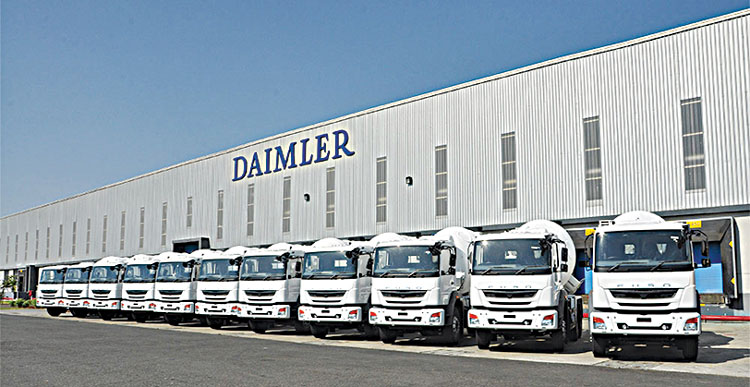Mumbai, May 21 (Agency) German auto giant Daimler AG’s Indian subsidiary DICV on Tuesday announced the opening of a virtual reality centre for commercial vehicles (CVs), which will allow operators to virtually perform serviceability and accessibility checks using a digital model accessed via 3D goggles and navigational joysticks. The latest innovation significantly reduces time and costs required for CV testing and development, Daimler India Commercial Vehicle (DICV) said in a release.
The virtual reality centre (VRC) houses an industry-best 3D Barco projector, a power wall, advanced real-time tracking cameras, 3D head movement tracker goggles, and virtual reality software capable of seamlessly interacting with the vehicle design via navigational joysticks. VRC has the potential to transform both research and development (R&D) and vehicle servicing procedures, as it reduces the need for custom-built tools, prototype vehicles, and service bays, the company said. DICV Managing Director and CEO Satyakam Arya said, ‘The company has already established itself as a technological leader with our made-for-India brand BharatBenz. Through this new virtual reality centre, we reinforce our position as innovators and disruptors.’ VRC has the potential to make CV servicing and R&D considerably faster, more comprehensive, and more cost-effective, according to Arya.
‘We are excited to pass these benefits on to our customers in the form of affordable, high-tech, high-quality products and services,’ he added. Another benefit of using virtual reality is the opportunities it offers for remote collaboration. Without the need for a physical model and workspace, DICV is able to share the digital models with Daimler Truck colleagues around the world, it said. ‘Before it goes to market, each new model must be evaluated based on how easy it is to service and maintain. The standard process is to develop a prototype version of the vehicle and then test how service technicians can access its parts and perform repairs. This process is repeated multiple times until the vehicle is fit to be mass-produced,’ added Arya. He also said the VRC will allow the company to replace many of those prototype-building iterations with virtual modelling and testing. ‘It will speed up the development process and free up resources for further enhancing our portfolio.

